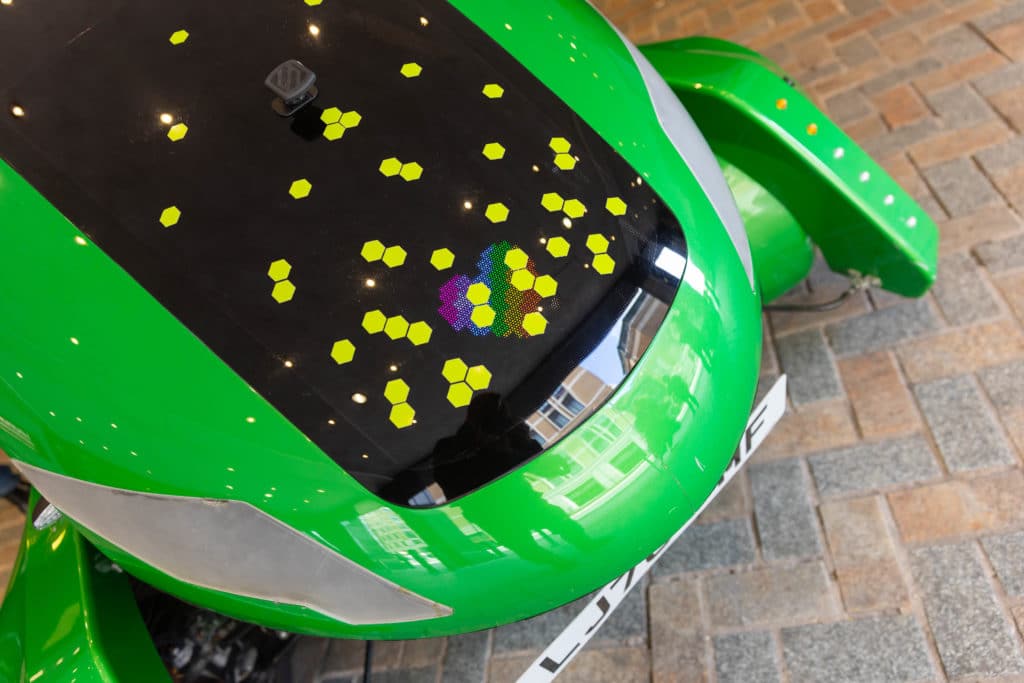William Sachiti, the Zimbabwean UK-based serial entrepreneur and founder of Academy of Robotics, is finding tech solutions for the world’s needs.
William Sachiti was very young when he had an epiphany that would completely transform his outlook on life.
He would spend his summer holidays visiting his grandparents in their village in Zimbabwe and whose predominant activity was farming and herding cattle. These experiences helped ground him.
“I found out the invisible lottery of life from an early age. All of us have to play this lottery system and this lottery has a result and the result could mean life or death. We all play it; we have no choice and the system is best described as a single question and that is ‘where were you born?’ That question will decide your outcome in life,” he says in an interview with FORBES AFRICA.
Sachiti would herd cattle with his friends during summer but go back to his normal privileged life afterwards, but his friends would still be where they were, rearing cattle.
“The difference between them and me was nothing; it is just that they were unlucky to be born in that place.”
Later on, Sachiti figured that if there was anything that could be used as a tool to change the world, that would be education. But he had to find out the hard way. After relocating to England in 2000, Sachiti began doing odd jobs such as selling double-glazed windows and doors that led to a job as a stock broker when he understood the world of real money.
“Stock broking at the time was sales because you need to be able to convince people to give you some of their money to help you invest and it involved six weeks of financial training,” says Sachiti.
That understanding of money was enough to help him begin his journey as a serial entrepreneur.
By the age of 19, Sachiti had started his first business. Believing that the internet was going to disrupt the Yellow Pages, which was essentially a classified listing of all businesses in a book, Sachiti created 123 Registration.
“We started selling thousands of websites and domains where we made it automated in such a way that in three easy steps, you can create a website. It did pretty well and someone bought it and that was my first exit,” recalls Sachiti.
While knocking on doors for his first business venture, Sachiti made an interesting observation about billboards. They were highly sought-after for the attention they could garner for any company but the problem was they were sold in clusters. For example, a business could not buy a billboard right outside their store unless they bought other billboards they had no use for. Sachiti’s entrepreneurial spirit kicked in again.
“I found out that under planning law, there is a planning exemption and you can put adverts on dual surfaces such as bins or benches. So, it hit me that if you could put a bin that is absolutely stunning like the Ferrari of bins, you could put one outside Leicester Square and advertise there. I created this and took that to the BBC Dragons’ Den. The invention was called Clever Bins. The dragons thought it was the worst idea they had ever heard at the time,” says Sachiti.

To the seasoned investors, a smart bin seemed like a dumb idea at a time when Steve Jobs had given the world the iPhone. They passed on Sachiti’s innovative bin idea but he would go on to license his idea in over 11 countries until someone finally acquired the main license for it.
After that exit came the problem of finding things to do in London.
“You come to London and you want to go to a club on a Thursday. That same club on a Friday is a rock night and the same club on a Wednesday is a gay night and it is an 80s night on a Saturday. So, you can’t go to a club all the time because what’s in the club changes all the time.”
Sachiti’s solution? Create a things-to-do-company called MyCityVenue, which grew to over 1.6 million users in the space of three years. That company was eventually acquired by a company called Secret Escapes and the data was also acquired by a big taxi business.
Cumulatively all the companies Sachiti sold made him millions of pounds. With that money, he set out on perhaps his most ambitious project yet, the idea of using robots to disrupt the world.
His first attempt at creating robots was when he enrolled in Aberystwyth University in Wales to study artificial intelligence and robotics.
Frustrated with the difficulty of finding the right locations for the books he needed, Sachiti created the first robot library where one could walk up to a robot and ask the robot for the exact location of a book and it would direct you.
After a number of hours on YouTube learning to build this interest, Sachiti decided to launch Academy of Robotics, a technology institute specializing in creating technology to perform or simplify complex tasks.
“In 2020, we built our flagship product, the Kar-go Delivery Bot which became one of the first vehicles designed for self-driving delivery to be licensed on the roads in Europe. The company’s services now include: self-driving delivery, indoor logistics robots and road defect detection and analysis,” says Sachiti.
At just 35, Sachiti is an expert on AI and autonomous navigation with regular appearances on TV and at industry and government panel discussions.
From creating a patent that will help build a super highway for drones to move from point A to B to creating a system to improve access to education and then publishing the technology as an open source allowing everyone to have access to the technology, Sachiti is an African determined to play the game of capitalism to disrupt any industry but create real value in the process.
